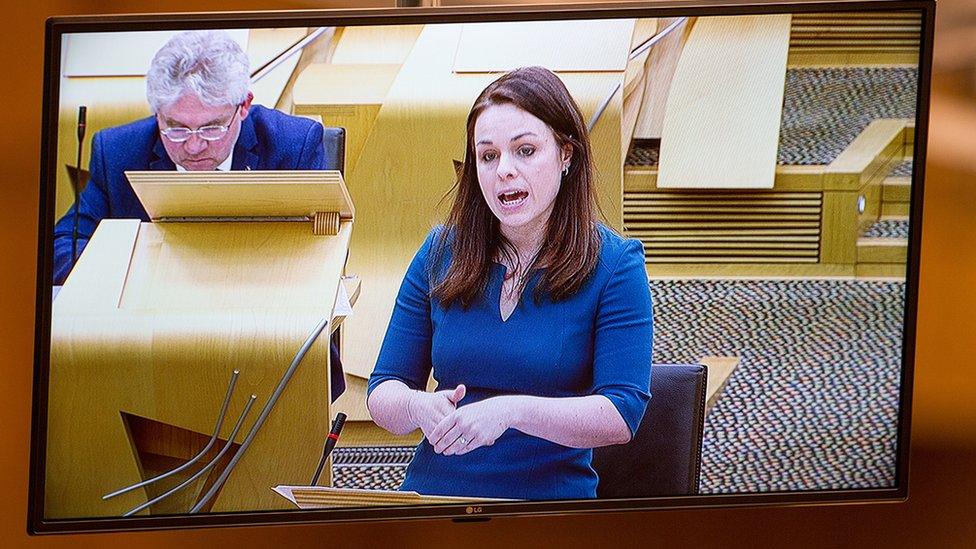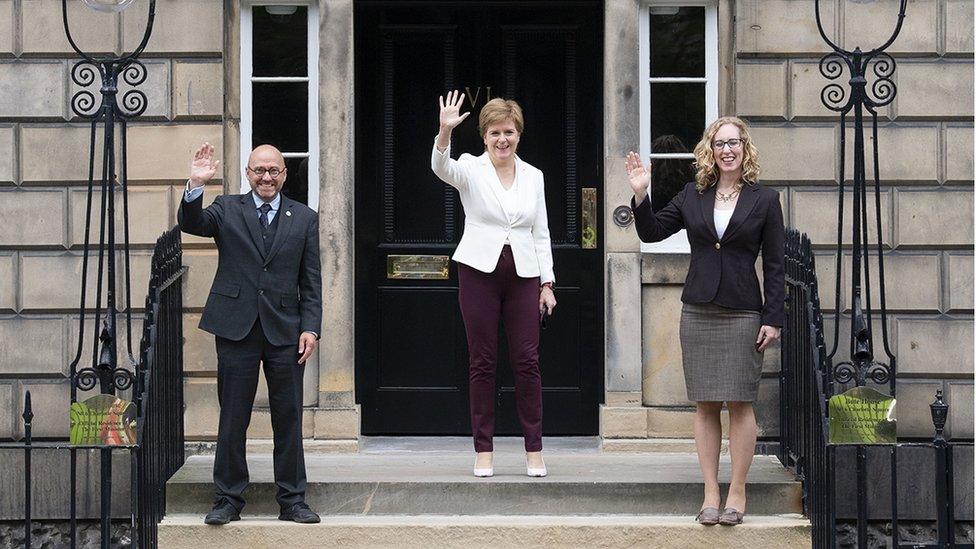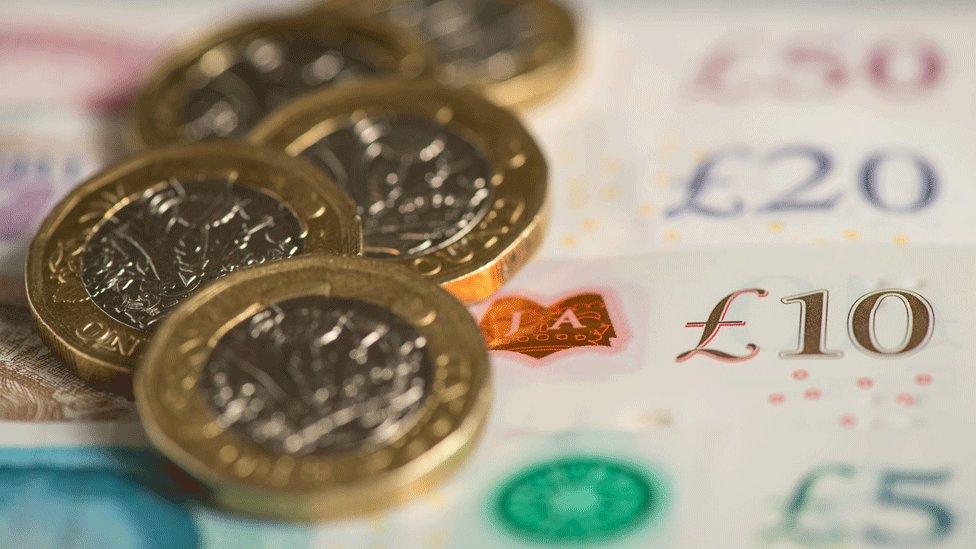Budget Day choices for Kate Forbes
- Published

The Scottish government has more than £40bn to spend next year, but not that much choice at the margin. This time the votes have already been secured so don't expect it to find any more.
Finance Secretary Kate Forbes has to accept the coatings and growth forecasts prepared independently by the Scottish Fiscal Commission.
Her tax options are limited, by election pledges and by the potential impact of raising tax on slowing growth in the economy.
How do you spend more than £40bn a year? It's quite simple, but also rather complicated.
The simple bit is to start with existing commitments, both contractual and political.
The contractual includes public sector pay, though it's worth watching what happens to policy on increases, while inflation is on the rise.
It also includes commitments to build roads and buildings, with a capital budget of more than £5bn, and to pay the for private finance of past building projects.
The political commitments include existing ones ranging from free student tuition and prescription charges to a new pledge, already announced by the first minister, to boost the new children's benefit from £10 a week to £20.
That tends to leave not much left over. What is unlikely this time - for the first time since 2014, when the SNP last had a majority of MSPs - is a kitty of money kept back with which to get a deal passed.

A power sharing deal with the Scottish Greens means there should be no post-budget negotiations to get it passed
Opposition parties with votes to offer the minority administration could demand funds for their priority projects, from home insulation to council funds.
This time, the deal has already been struck. Scottish Green MSPs have a promise to expand free bus travel for young people, a share of the transport budget for active transport (but no veto on the SNP's preferred roads projects) and they'll have to be satisfied for whatever is going to councils.
Where there may still be a tussle between the two sides of this alliance is how much autonomy councils have to spend that money. They are likely to get more to fund reform of social care, but it's likely to be ring-fenced.
The SNP has a tendency to centralise control, which is the likely direction of the National Care Service being proposed: Greens prefer things to be more local.
Taxing times
Also behind the scenes, watch out for the Scottish Fiscal Commission (SFC). It has a role similar to the Office for Budget Responsibility in London, in providing independent analysis of what each new policy will probably cost.
It also sets the likely rate of growth in the economy, and the consequent level of tax revenue that Kate Forbes should plan her budget.
The SFC is run from the former prison governor's house just across the car park from St Andrew's House on Edinburgh's Calton Hill. It gets to the see the Holyrood budget as it's prepared, providing feedback on what different options will cost.
So what else to watch in this budget?
How much support goes to business, as business rates holidays are wound down?
Kate Forbes has been talking about 'phasing', which may refer to a percentage reduction over parts of the financial year ahead.
As pandemic restrictions have eased, that is how the Treasury has been winding down business rates support through the current financial year.
Tensions with Westminster over ongoing support for tackling the pandemic.
Two years of very high levels of emergency funding are due to end in April, with the end of this financial year.
The re-introduction of restrictions for England have this week brought it into line with Scotland and other parts of the UK and Europe. Business has responded with a call for compensation for those losing out.
The Treasury so far says no: firms still have recovery loans and protection from eviction. But if that changes, Holyrood would get a share of continuing pandemic costs - across health pressures, vaccines, test-and-trace and business support.
Kate Forbes may choose to use income tax powers to raise funds. (She's unlikely to cut tax to lower the funds available to her.)
Given election promises made in spring, it's unlikely there will be big changes. But there is a choice on whether to raise thresholds with inflation, meaning a neutral position, or freezing thresholds, which would take around £140m from taxpayers as their earnings move into higher tax brackets.
It's not guaranteed that higher tax rates mean more income, however. Recent experience shows that the higher revenue from income tax has been largely offset by a relative fall in the size of the base for collecting income tax.
Related topics
- Published9 December 2021

- Published7 December 2021

